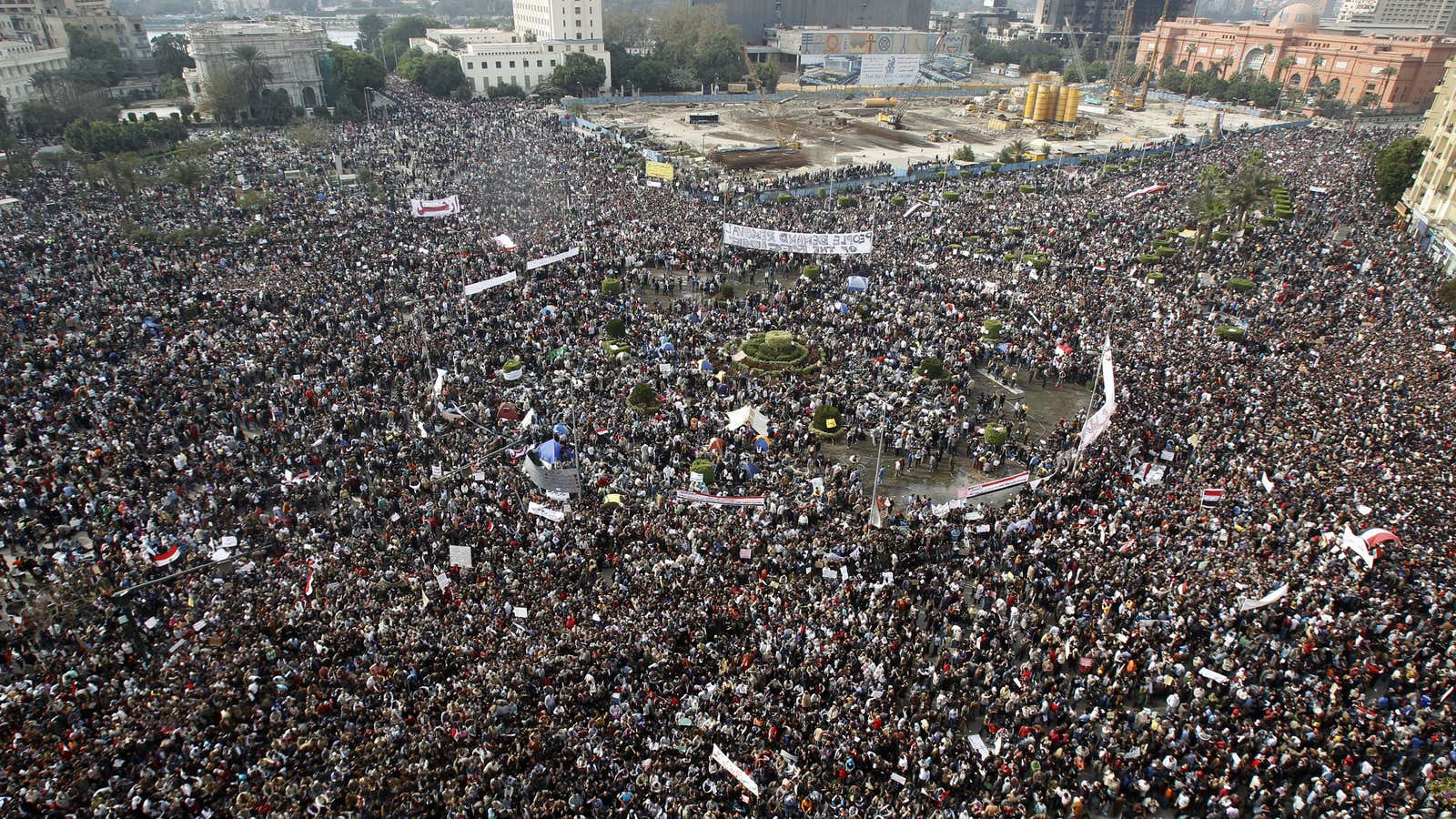As news of Mohamed Morsi’s death sentence broke this week, it capped a stunning reversal of the Egyptian revolution. At one point the emblem of a peaceful overthrow of an autocratic ruler, what has happened since those electrifying scenes in Tahrir Square is a study of how power protects itself.
The story is now well known. Morsi and his Muslim Brotherhood allies swept into power in what was universally declared to be a free and fair election. But then the army engineered a masterful counter-revolution that led to the deposing of Morsi and a return to government of one of Hosni Mubarak’s close ally: general Abdel Fatah al-Sissi. The general “won” a mandate to govern after securing 90% of the vote. Yes, kind of like it used to be in the Mubarak days.
The whole first-ever-democratic-elections thing now looks like a blip on the road to continued autocracy in Egypt. Crackdowns on dissent have resumed. Freedom of speech is no longer tolerated. Overall, as Human Rights Watch points out, the deterioration of the situation is eerily reminiscent of Mubarak’s rule. It is fair to say that the revolution died.
Meanwhile, in Libya, another old school strongman, Muammar Gaddafi, was removed from power by a mixture of a popular uprising and a little help from a coalition of the willing. The New York Times declared the effort a model of humanitarian intervention.
But now things are so terrible in Libya that some are asking whether the country is a failed state. Actually, they’re not asking, but pronouncing. There are now two parallel governments running the country. The eastern part is governed by a secular alliance while a different collective controls the west. On top of that, post-Gaddafi Libya has now become a proxy for the ideological battles of the Middle East. Turkey, Qatar and North Sudan are aligning themselves with the Islamists, while Egypt and the United Arab Emirates have been trying to prop up the secularists. This is not a recipe for a flourishing democracy.
Elsewhere, in Syria, well, need I say more? President Bashar al-Assad has brutally cracked down on the rebellion, unleashing a civil war that has killed over 200,000 people, according to human right groups. Not to mention, the dysfunction resulted in a power vacuum that spawned ISIS, a nihilistic force that is threatening to take over Syria’s neighbor, Iraq.
In Bahrain, the country’s rulers stared down activists protesting for democratic reforms, and while they suggested they would be amenable to reforms, things have not quite worked out that way. Torture, banning of demonstrations, and jailing of activists continues, according to Amnesty International.
The only success story out of the Arab Spring is Tunisia’s. The north African nation, the so-called birthplace for the Arab Spring, held a successful presidential election last November since the fall of autocrat Zine el-Abidine Ben Ali in 2010. After 60 years of dictatorial rule, Beji Caid Essebsi, 88, was voted in as the country’s first democratically elected leader. And he has been working hard to ensure the different elements of Tunisian society are part of this new dispensation, including the Islamists.
The challenges there are still profound. In March gunmen killed 19 people at a downtown museum in the capital Tunis, highlighting the threat of violent extremism in the country. According to the Washington Post, Tunisians make up the highest number of people joining ISIS in Syria of any country in the world. So even the poster child of Arab Spring success doesn’t paint a rosy picture for the world.
When the images of men and women marching across the streets of the Arab world spread, they moved and inspired humanity, giving hope that finally true reforms will arrive in the Middle East. But it hasn’t quite turned out that way. The status quo fought back hard and re-entrenched their power with vicious and bloody efficiency. And it now looks entirely unlikely that there will be any more green shoots from that remarkable spring of five years ago.
